The Sublime World Of Leonard Bernstein’s Broadway Productions
With innovative works such as ‘West Side Story’ and ‘On The Town,’ composer Leonard Bernstein helped revolutionize Broadway in just a few short years.
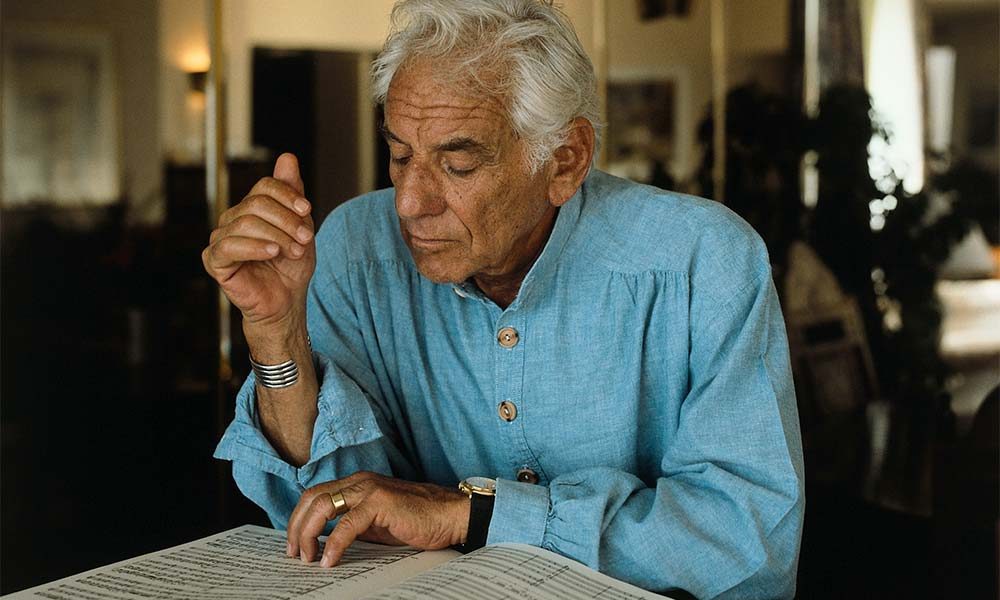
Next to the great George Gershwin, no other American composer can claim to have worked across as many musical genres, except for Leonard Bernstein.
A musical genius who enlightened our lives, Leonard Bernstein (August 25, 1918 – October 14, 1990) seemed equally at ease in classical, theatre, jazz, and, in at least one instance (Elia Kazan’s On The Waterfront) film scores; across them all, his work was consistently compelling, singular and sublime. Here’s a look at how one of America’s greatest composers conquered the Broadway stage and beyond.
Listen to Bernstein On Broadway right now.
An early passion for music
Born in Lawrence, Massachusetts, on August 25, 1918, Bernstein’s interest in music started at an early age. When he was 10 years old, his aunt Clara gave his parents an upright piano for which the young Bernstein immediately developed an intense passion. Years later, while a student at Harvard, he met Dimitri Mitropoulos, who encouraged him to become a conductor. Bernstein went on to study under Fritz Reiner at the Curtis Institute Of Music in Philadelphia and, in 1940, went to Tanglewood (the Boston Symphony Orchestra’s summer home in the Berkshires) where the famed conductor Serge Koussetvitzky took him under his tutelage and gave him his first opportunity to appear in public.
Artur Rodzinski, music director of the New York Philharmonic who had heard Bernstein conduct a rehearsal at Tanglewood, asked the fledgling composer to be his assistant for the 1943-44 season. Usually, assistant directors do little more than warm up the orchestra before a performance, but on 14 November, Bernstein suddenly found himself propelled to center stage when the scheduled conductor became ill and needed to be replaced. With characteristic flair, Bernstein seized the opportunity and led the orchestra in a vibrant performance that received inordinate publicity when it was reviewed on the front page of The New York Times.
Hailed as a “wunderkind”
Now hailed as a “wunderkind,” Bernstein began to receive musical commissions. The first he accepted was a ballet, Fancy Free, choreographed for the Ballet Theatre by another gifted newcomer, Jerome Robbins. The work, which described the 24-hour shore leave of three sailors in New York, premiered at the Metropolitan Opera House on April 18, 1944, and was such a resounding success that its creators decided to use it as the basis for a larger work – the Broadway musical On The Town.
An irresistible blend of youthful exuberance and bright, energetic action, with great lyrics by Betty Comden and Adolph Green and an exciting score by Bernstein, On The Town opened at the Adelphi Theatre on December 28, 1944, and enjoyed a healthy run of 463 performances. It subsequently made a successful transfer to the screen as a vehicle for Gene Kelly and Frank Sinatra.
It took nine years before Bernstein returned to Broadway, in 1953, with the creation of Wonderful Town, which paired him again with Comden and Green. Serviced by a cheery book by Joseph Fields and Jerome Chodorov (adapting one of their own plays, My Sister Eileen), Wonderful Town made a splash when it opened at the Winter Garden, on February 25, 1953, where it would run for 559 performances.
Composing “serious works”
In addition to his numerous engagements as conductor of the Philharmonic, Bernstein turned his attention to composing “serious works” and hosting a celebrated (and influential) television program, The Young People’s Concerts, among other occupations that kept him away from the stage. He returned to Broadway in 1956, this time with an adaptation of Candide, the 18th-century satirical French novella by Voltaire. With a book by Lillian Hellman and lyrics by John La Touche, Dorothy Parker, and the Pulitzer Prize-winning poet Richard Wilbur, it seemed like an ideal project, but it soon became apparent that the story was ill-suited for a stage treatment (at least in the way it was originally conceived).
When Candide opened on December 1, 1956, the operetta was characterized as too highbrow, and it closed after only 73 performances. Bernstein’s score, however, was the silver lining that kept companies coming back. With its wide range of great tunes, Candide included a tango, a mazurka, a barcarolle, and an aria, among many other chosen moments that added up to a brilliant display of orchestral pyrotechnics, the whole thing capped by a scintillating “Overture” which soon became a classic in concert halls around the world. Revamped and reinvented, Candide found greater success later with two Broadway revivals, in 1973 and 1997, respectively, and a recent revival production by the Los Angeles Opera starring Kelsey Grammer.
His most enduring work
When Bernstein scored his next effort, he found instant success and created one of his most enduring works, West Side Story. A modern-day adaptation of Shakespeare’s Romeo And Juliet, set in New York, Bernstein and Jerome Robbins had begun working on the idea some years earlier as a love story between a young Jewish girl and an Italian Catholic boy living on the Lower East Side of Manhattan. Somehow it didn’t click the way they wanted it to, and they shelved the idea.
They returned to it six years later, but in view of the increasing influx of young Puerto Ricans, they decided that a storyline involving a Puerto Rican girl and an all-American boy would have more relevance. The plot was developed around the rivalry between two gangs: The Sharks and The Jets, and their struggle for control over the Upper West Side. Bernstein had initially thought about writing both music and lyrics but ended up ceding the latter to a newcomer, Stephen Sondheim, who would soon make a name for himself as one of the most celebrated composer-lyricists of his generation.
When the show opened at the Winter Garden, on September 16, 1957, it was unanimously hailed as an impressive achievement. “It takes up the American musical idiom where it was left when George Gershwin died,” proclaimed The Daily News. West Side Story had a run of 734 performances but received worldwide recognition when it was adapted for the screen in 1962, with memorable performances by Natalie Wood and Rita Moreno as its two female leads
Though he often expressed the desire to write for Broadway again (his only other show was 1600 Pennsylvania Avenue, an ambitious attempt to chronicle the first hundred years at The White House), Bernstein’s last grand-scale work for the stage was Mass, a great undertaking created in 1971 for the opening of the John F Kennedy Center For The Performing Arts, in Washington, DC. With lyrics by Wicked composer Stephen Schwartz, Mass has been described as a “theatre piece for singers, players, and dancers,” and takes its inspiration from the Roman Catholic liturgy.
In its own way, that production also symbolizes everything Bernstein was: a man whose life was a strange mixture of flamboyant outbursts and profound emotional perceptions, and who, in his best moments (and they were many), could conjure up the Jazz Age excitement of George Gershwin and the brooding depth of Gustav Mahler, a composer Bernstein admired and championed incessantly.



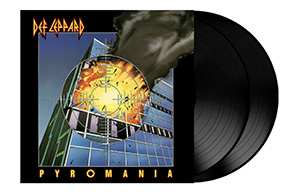
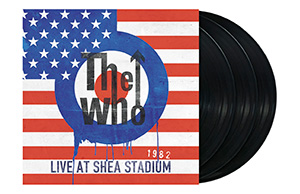



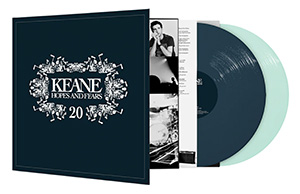
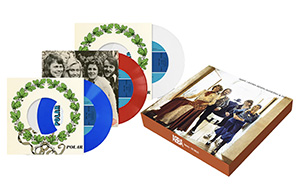
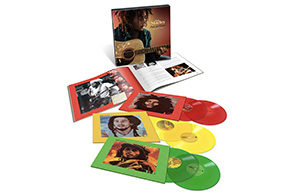
John Jenkins
August 27, 2022 at 4:46 am
Andre Previn also successfully worked in several genres (classical, theatre, jazz, and film scores), but admittedly not such a huge influence as Bernstein.